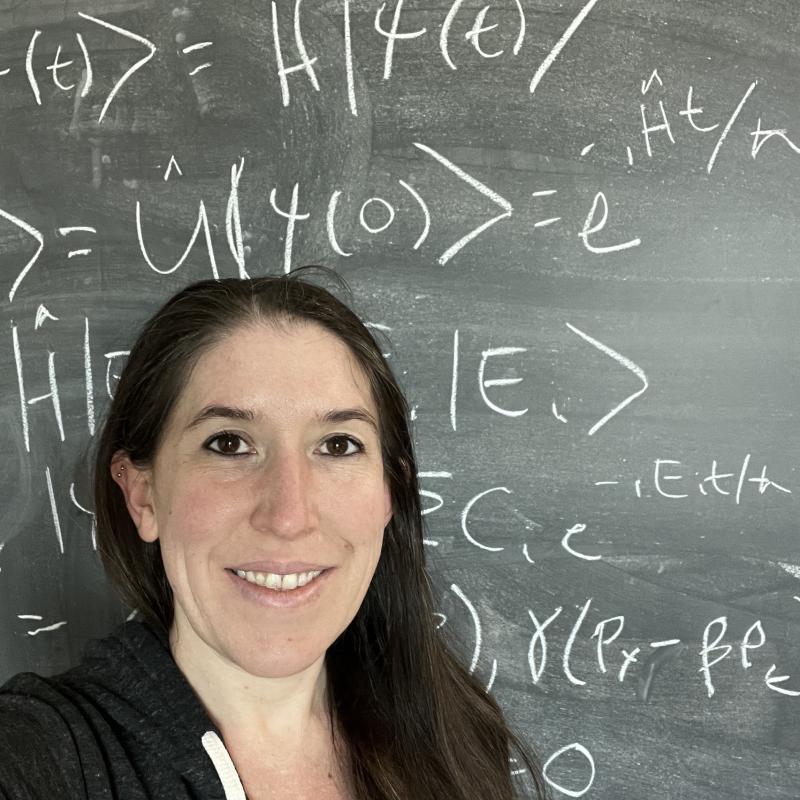Dr. Alexandra Miller
Associate Professor

Contact
(707) 664-3539
[email protected]
Office
Darwin 300LOffice Hours
Biography
Dr. Miller was born and raised right here in Northern California (in Vacaville to be precise). She received her B.S. in Physics with minors in Theatre and Philosophy from San Francisco State University. She then moved down south to study at UC Santa Barbara, where she earned both an M.A. and a Ph.D. in Physics. Finally, she spent one year as a Visiting Lecturer at Wellesley College in Massachusetts before returning to California to join the wonderful faculty at Sonoma State University. In her free time, Alex likes to play soccer, go hiking, rock climb, and play nerdy board games.
Education
Ph.D., Physics, University of California Santa Barbara
M.A., Physics, University of California Santa Barbara
B.S., Physics, San Francisco State University
Academic Interests
Dr. Miller's research is in the field of Quantum Gravity, which aims to answer one of the biggest open questions in physics today: How can one consistently unite Einstein′s theory of General Relativity with Quantum Mechanics? This is imperative to our understanding of the universe at its most fundamental level and is especially important in finding a complete description of black holes and the universe right after the big bang.
Selected Publications & Presentations
D. Berenstein and A. Miller, “Logarithmic enhancements in conformal perturbation theory and their real time interpretation,” Int. J. Mod. Phys. A, 35, no. 29, 2050184 (2020) [arXiv:1607.01922 [hep-th]]
D. Berenstein and A. Miller, “Code Subspaces for LLM Geometries," Class. Quant. Grav. 35, no.6, 065003 (2018) [arXiv:1708.00035 [hep-th]].
D. Berenstein and A. Miller, “Can Topology and Geometry be Measured by an Operator Measurement in Quantum Gravity?," Phys. Rev. Lett. 118, 261601 (2017) [arXiv:1605.06166 [hep-th]].
D. Berenstein and A. Miller, “Conformal Perturbation Theory, Dimensional Regularization, and AdS/CFT," Phys. Rev. D 90, 086011 (2014) [arXiv:1406.4142 [hep-th]].

